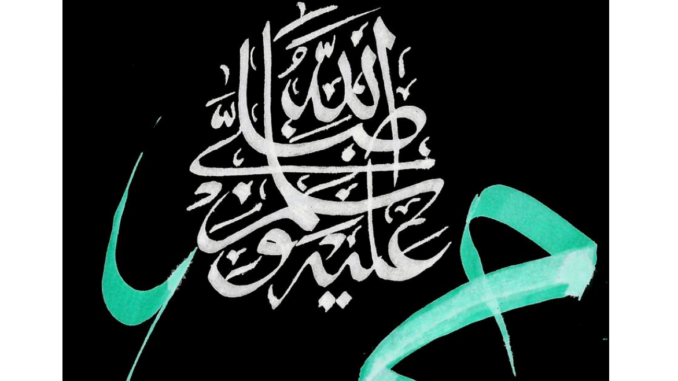
While holding my grandson in my arms, I sang a lullaby. He began stroking my cashmere sweater, keeping the beat, and my mind returned to a warm coat I had snuggled in, in Medina.
My father’s soft, sonorous voice would lull us to sleep. It was one long refrain he sang to my sisters and me; it always worked as it was soothing. The verse was in Arabic, so we did not know what it meant hence it was pure music as far as we were concerned: Salla Allah ala al-nabi al-ummi wa alihi, salla Allah alayhi wa sallam, salaman wa salatan, alayk ya Rasul Allah. Of course, we knew it had religious connotations as it had the Arabic word for God: Allah and Rasul (Messenger). But somehow, it never occurred to us to decipher its meaning. Little surprise that all of us siblings grew up inadvertently knowing that refrain by heart. Soon, we used the same lullaby in Canada with our children as it continued to conjure its magic.
During Ramzan, the month of fasting, Muslims are encouraged to retreat and live in a mosque for a day and night or more if possible. All mosques in the world accommodate such guests. Muslims do not register with any mosque and are free to retreat to whichever mosque they wish. One Ramzan, the architect in me decided to up the ante and go on a ten-day retreat in the Great Mosque of Muhammad ﷺ in Medina which was now as big as the city of Medina during the time of the Prophet.
One night a cold desert wind blew through the large archways of the mosque, a modulated whistle without a discernible melody. I never knew that desert nights could be so cold and had come unprepared. Seeing me shivering, an Arab elder with a patriarchal white beard, also in retreat, took off his coat and draped me with it. It was a nondescript dark brown traditional Bedouin farwa coat that was soothingly warm and lined with goat fur with a hint of attar fragrance. It had a pair of gleaming brown embroidered borders running its length as rivulets reflecting sunshine while flowing on the dark earth. The coat was edged with glossy piping. The following day I folded the heavy and expensive coat to return; he smiled and said that I was a guest and the farwa was mine. His spontaneous generosity was overwhelming. As I had come to the retreat empty handed, even breaking my fast with the food sent by the native residents of the city, all I could offer him was my sincere thanks while asking what I ought to give him in return. The bearded elder looked at my clean shaven face and said, “Muhammad Sallallahu Alaihi Wasallam liked men to keep beards.” I replied with a mother-of-all deferment, “Inshallah, if God wills it.”
The elder Arab used to read from a small leather-bound book. I asked him what it was about. It was a book of ninety-nine duroods, invocations, and specific phrases praising the Prophet Muhammad Sallallahu Alaihi Wasallam (Peace and Blessings of Allah be upon him). Chapters of the Quran are arranged from the longest to the shortest. In this book of invocations, the ninety-nine duroods were set in reverse: beginning with the shortest and ending with the longest. The first durood in the book, and hence the shortest one, was the lullaby my grandson heard from my son, my children learnt from me, I from my father, and he from his father going back over millennia. The invocation celebrated that the Prophet, who conveyed the Quran, the classical key to Arabic language and grammar, was paradoxically himself unlettered. This is what the durood lullaby said:
“God’s blessings be upon the unlettered Prophet and his family, God’s blessings and peace, peace and blessings upon you, O’ Messenger of God.”
Years later, when a shaykh who taught my son Quran in Canada, gratis, mentioned that he would visit his aging father in Libya, I gifted the Bedouin coat to that aging patriarch. The coat had turned a full circle. So did I that Ramzan when I visited the Prophet’s gigantic Mosque in Medina again. Among a million other worshippers, I ran into that old Arab who had gifted me the coat. I reminded him of our meeting years ago. He squinted his eyes and slowly smiled when he recognized my face behind my beard.
![]()
The Ummi calligram can be downloaded from Academia
Architect-Poet-Calligrapher H. Masud Taj lives with his family in Ottawa, Canada and visits India usually during the monsoon.
This author in The Beacon.

Leave a Reply